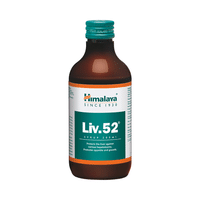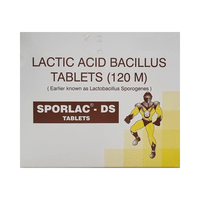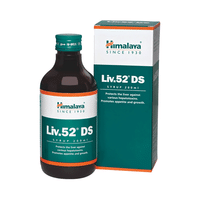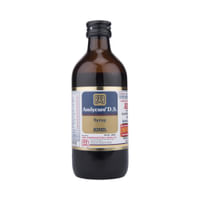Rs.912for 1 strip(s) (15 tablets each)
Livolup Tablet के लिए भोजन प्रभाव
Livolup Tablet के लिए शराब प्रभाव
Livolup Tablet के लिए गर्भावस्था प्रभाव
Livolup Tablet के लिए स्तनपान प्रभाव
भोजन
शराब
गर्भावस्था
स्तनपान
Livolup 300mg Tablet is to be taken with food.
None
None
CAUTION
Caution is advised when consuming alcohol with Livolup 300mg Tablet. Please consult your doctor.
CAUTION
Livolup 300mg Tablet may be unsafe to use during pregnancy. Although there are limited studies in humans, animal studies have shown harmful effects on the developing baby. Your doctor will weigh the benefits and any potential risks before prescribing it to you. Please consult your doctor.
CONSULT YOUR DOCTOR
Livolup 300mg Tablet should be used with caution during breastfeeding. Breastfeeding should be held until the treatment of the mother is completed and the drug is eliminated from her body.
CAUTION
Livolup 300mg Tablet की लवण सम्बन्धी जानकारी
Ursodeoxycholic Acid(300mg)
Livolup tablet का उपयोग
{med_name} is used in the treatment of gallbladder stones and primary biliary cirrhosis.
Livolup tablet कैसे काम करता है
Livolup 300mg Tablet is a hepatoprotective medication. It works by reducing the amount of cholesterol in the blood and helps dissolve gallbladder stones that are composed mainly of cholesterol. It also improves liver enzymes, protects liver cells from injury caused due to toxic bile acids, and improves liver function.
Livolup tablet के सामान्य दुष्प्रभाव
Abdominal pain, Diarrhea, Hair loss, Itching, Nausea, Rash
Livolup Tablet का विकल्प
1104 विकल्प
1104 विकल्प
Sorted By
 Rs. 330save 47% more per Tablet
Rs. 330save 47% more per Tablet Rs. 426save 30% more per Tablet
Rs. 426save 30% more per Tablet Rs. 290save 54% more per Tablet
Rs. 290save 54% more per Tablet Rs. 350save 56% more per Tablet
Rs. 350save 56% more per Tablet Rs. 352save 63% more per Tablet
Rs. 352save 63% more per Tablet
Livolup Tablet के लिए विशेषज्ञ की सलाह
- Ursodeoxycholic Acid should be taken after a meal with a glass of milk or water.
- Eat a healthy diet, exercise regularly, and avoid alcohol intake.
- Diarrhea may occur as a side effect. Drink plenty of fluids and inform your doctor if diarrhea persists or if you find blood in your stools.
- Your doctor may monitor your liver function and bilirubin levels every month for the next 3 months after the start of therapy and every 6 months thereafter.
- Do not stop taking the medication without talking to your doctor.
Livolup 300mg Tablet के लिए अक्सर पूछे जाने वाले सवाल
Ursodeoxycholic Acid
Q. When should I take Livolup 300mg Tablet?
The suitable timing of taking this medicine might differ depending on your condition. Your doctor might instruct you to take 2 to 3 doses per day and suggest taking the last dose at bedtime. Livolup 300mg Tablet should be taken with water or milk after food. When prescribed for dissolving gallstones, it is usually suggested to be taken once daily at night.
Q. Is Livolup 300mg Tablet safe?
Livolup 300mg Tablet is usually considered to be a safe and effective medicine. However, this medicine may have some common side effects, such as diarrhea. If diarrhea occurs, your doctor may reduce the dose, and if it persists, your treatment may be discontinued. Additionally, using this medicine as a long-term therapy may also affect your liver enzyme levels. To keep a check on this, your doctor will keep monitoring your liver enzyme levels regularly. Despite these minor side effects, this medicine is supposed to be a good alternative to surgery in some patients with gallstones.
Q. How does Livolup 300mg Tablet help the liver?
Livolup 300mg Tablet acts on the liver and gets concentrated in the bile secreted from the liver. This, as a result, suppresses the synthesis and secretion of cholesterol by the liver, thereby decreasing the cholesterol levels in bile. This medicine also acts by stopping the intestines from absorbing the bile salts and cholesterol. So, the reduced cholesterol saturation in the bile from the liver leads to the gradual dissolving of cholesterol from gallstones, leading to a decrease in size and their eventual dissolution. It also reduces elevated liver enzyme levels by increasing the bile flow through the liver, hence protecting the liver cells.























